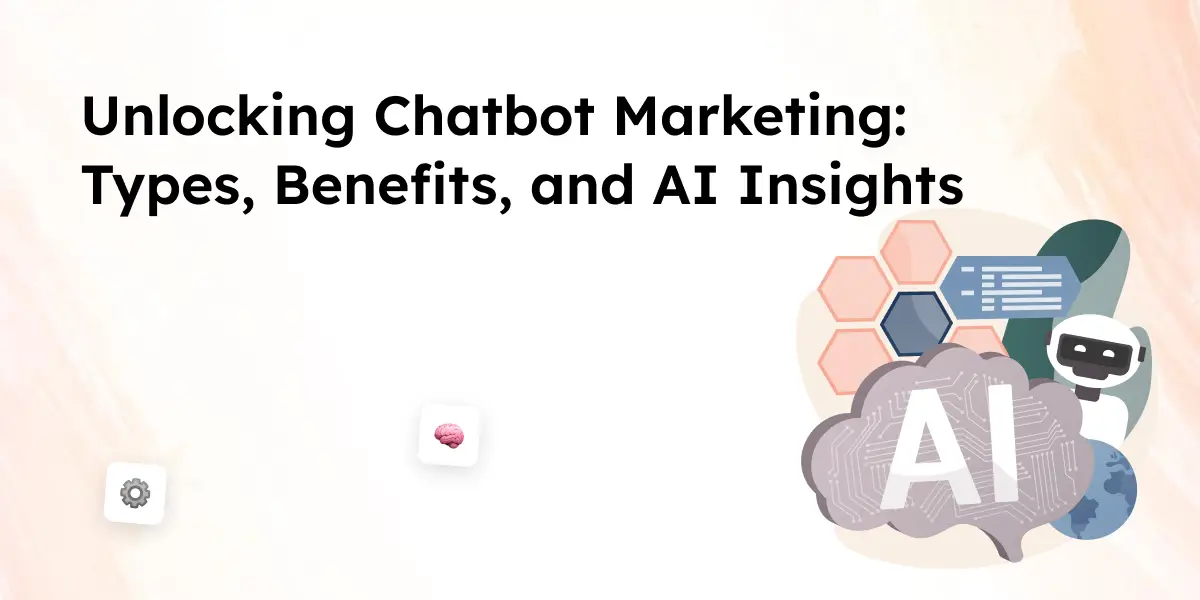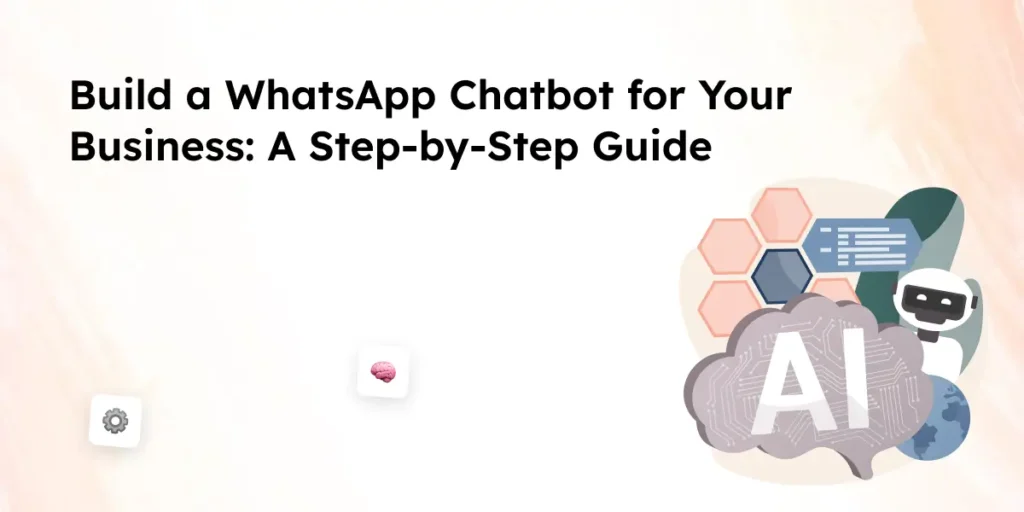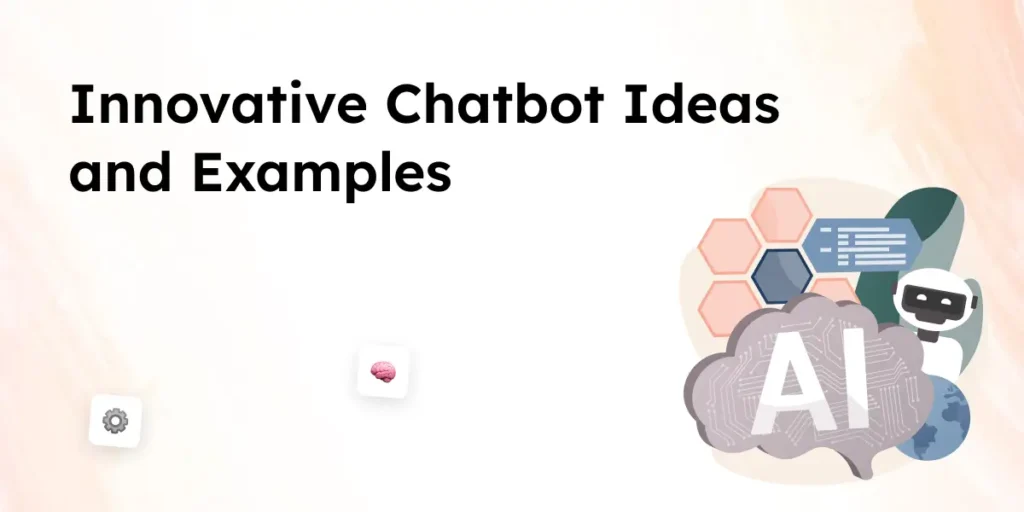Chatbot marketing is transforming how businesses interact with customers. A chatbot is a software program that automates conversations using AI or pre-set rules. Companies use chatbots across various marketing channels, like websites and Facebook Messenger, to engage potential customers, send marketing messages, and improve lead generation.
Chatbots help businesses automate interactions, improve customer engagement, and personalize responses. They play a key role in digital marketing, offering conversational experiences that feel human-like while handling high volumes of inquiries. With AI and machine learning, chatbot development has advanced, making it easier to create a chatbot that learns from customer interactions. Expanding chatbot marketing to global audiences requires multilingual capabilities. Explore how multilingual chatbots work to optimize your strategy.
Businesses can integrate chatbots into their marketing strategy to offer a non-spammy chatbot experience, drive sales, and enhance customer support. Whether starting a free chatbot trial or building a chatbot from scratch, having a solid chatbot marketing strategy ensures better results.
The Evolution of Chatbots in Digital Marketing
Chatbots have changed significantly since the first chatbot, ELIZA, was created in the 1960s. Early versions were simple rule-based chatbots that could only respond to specific keywords. Today, ai chatbots use machine learning and natural language processing to provide more conversational interactions, making them more effective in marketing and sales.
Early chatbots (1960s-2000s)
- Basic text-based bots with limited functionality
- Could only respond to predefined keywords
- Used mainly for research and experimental purposes
Rise of ai-powered chatbots (2010s-present)
- Ai chatbots analyze customer needs and provide personalized recommendations
- Conversational ai improves how chatbots understand user intent
- Businesses use ai chatbots for marketing campaigns, customer engagement, and customer support
Integration with digital marketing strategies
- Chatbots can automate tasks like lead generation and appointment scheduling
- They interact with website visitors, social media users, and email subscribers
- Businesses use ai chatbots to enhance marketing and sales while ensuring a non-spammy chatbot experience
The future of chatbots in marketing
- Ai-powered chatbots will continue to improve with advancements in machine learning
- Businesses will use chatbots across different platforms, including email marketing and facebook messenger
- Hybrid chatbots that combine rule-based chatbot structures with ai will improve customer experience
Many businesses now recognize the use of chatbots as a key part of digital marketing. Whether a company wants to set up chatbots for lead generation or improve customer engagement, chatbots are becoming a must-have tool for every marketing team.
Benefits of Using Chatbots for Marketing
Businesses use chatbots to engage customers, automate responses, and streamline their marketing strategy. Ai chatbots help brands improve customer engagement by offering quick and relevant responses. They also reduce the workload on marketing and sales teams while enhancing the overall customer experience.
Improved customer engagement
- Chatbots to engage website visitors in real-time
- Provide instant responses, reducing wait times
- Conversational ai makes interactions feel more natural
Lead generation and sales growth
- Chatbots can automate lead capture and qualification
- Use chatbots to gather contact details and preferences
- Marketing chatbot can send marketing messages and follow-ups
24/7 customer support
- Businesses can use a chatbot to answer common questions any time
- Ai chatbot reduces the need for live chat agents for basic queries
- Chatbots help maintain consistent service across time zones
Personalized marketing and recommendations
- Chatbots can be used to analyze user behavior for better targeting
- Offer a more personalized customer journey with dynamic responses
- Personalized recommendations increase conversion rates
Seamless integration with digital marketing efforts
- Chatbots can be integrated into email marketing, social media, and messaging apps like facebook messenger chatbot
- Automated chatbots using machine learning improve the chatbot experience over time
- Marketing teams can set up chatbots to support multiple marketing channels
Cost savings and efficiency
- Chatbots can help businesses reduce customer service costs
- Automated responses save time for sales and marketing teams
- Chatbot marketing strategy reduces dependency on human agents
Many companies use marketing chatbots to create a non-spammy chatbot experience that enhances their brand reputation. Chatbots have many applications, from customer engagement to marketing and sales. By using chatbots effectively, businesses can optimize their digital marketing efforts while improving customer satisfaction.
Steps to Build an Effective Chatbot Marketing Strategy
Define your chatbot’s purpose
- Identify key goals such as lead generation, customer support, or product recommendations
- Decide whether to use ai chatbots for conversational marketing or rule-based chatbots for simple queries
- Ensure the chatbot aligns with your overall marketing strategy
Choose the right chatbot platform
- Select a chatbot platform that supports integration with your marketing and sales tools
- Consider platforms that allow businesses to create a chatbot without extensive coding
- Popular chatbot platforms offer ai-powered automation for improved customer experience
Design a user-friendly chatbot experience
- Chatbot should appear natural in conversations, using a mix of conversational ai and quick response options
- Offer free trials or exclusive discounts through chatbot conversations
- Ensure a non-spammy chatbot experience by keeping interactions relevant and valuable
Integrate chatbots into multiple marketing channels
- Use chatbot across social media, website chat, and messaging apps like facebook messenger
- Chatbots can be integrated into email marketing campaigns to nurture potential customers
- Hybrid chatbots can handle both automated and live chat responses
Personalize interactions and automate responses
- Personalize chatbot responses based on customer needs and past interactions
- Chatbots can also offer personalized recommendations based on browsing history
- Automate responses to frequently asked questions to improve efficiency
Monitor chatbot performance and optimize continuously
- Use chatbots to collect customer feedback and improve messaging over time
- Track chatbot conversations to understand where customers drop off or need better support
- Chatbot development should focus on refining ai capabilities for better engagement
social media marketing campaigns
- Chatbots play a crucial role in social media marketing, helping brands automate customer interactions and increase conversions.
- For example, chatbots on Facebook Messenger can guide users through a sales funnel. Learn more about leveraging chatbots for social media marketing.
A strong chatbot marketing strategy helps businesses provide a seamless chatbot experience while improving overall marketing effectiveness. Chatbots can be used to automate lead capture, customer interactions, and marketing messages. With the right approach, businesses can use chatbots for marketing to enhance customer engagement, drive conversions, and support sales growth.
Chatbot Marketing Examples: Real-World Use Cases
Many businesses use chatbots for marketing to engage customers, automate responses, and drive sales. By integrating chatbots across different marketing channels, companies can improve customer engagement while reducing the workload on human agents. Below are some real-world chatbot marketing examples that show how businesses are using chatbots to enhance their marketing strategy.
E-commerce chatbots for product recommendations
- Online stores use ai chatbots to offer personalized recommendations based on customer browsing history
- Chatbots can automate responses to customer inquiries about products, pricing, and availability
- Chatbots can be integrated with shopping platforms to assist with purchases and upselling
Lead generation chatbots for collecting customer data
- Businesses use chatbots to engage website visitors and collect potential customers’ information
- Marketing chatbot interacts with users, asking relevant questions to qualify leads
- Automated chatbots using machine learning improve lead segmentation over time
Chatbots in social media and messaging apps
- Facebook messenger chatbot assists customers with orders, promotions, and support inquiries
- Chatbots can be used to send marketing messages and targeted promotions to followers
- Hybrid chatbots can handle both automated responses and human interactions when needed
Customer support chatbots for instant responses
- Businesses use a chatbot to answer frequently asked questions and reduce support wait times
- Chatbots help provide a seamless chatbot experience by assisting users with troubleshooting issues
- Rule-based and ai-powered chatbots work together to ensure a balance of automation and human support
Chatbots for digital marketing campaigns
- Chatbots can be used in email marketing campaigns to increase engagement
- Marketers can use chatbot conversations to personalize promotions and offers
- Chatbot marketing strategy helps brands maintain a conversational tone with customers
These chatbot marketing examples show how businesses across industries are leveraging chatbots to engage customers and automate interactions. Whether for lead generation, social media engagement, or personalized marketing, chatbots help brands create a more interactive and efficient marketing approach.
Best Practices for an Effective Chatbot Marketing Experience
A well-designed chatbot can improve customer engagement, automate marketing messages, and enhance the overall chatbot experience. Businesses that use chatbots effectively ensure their interactions feel natural, helpful, and non-intrusive. Below are best practices to create a chatbot that supports marketing campaigns and improves customer interactions.
Make Interactions Conversational
- Chatbot conversations should feel natural and engaging
- Conversational ai helps improve responses by understanding user intent
- Use chatbot to answer questions clearly and concisely
Ensure a Non-Spammy Chatbot Experience
- Chatbots should provide value instead of overwhelming users with messages
- Avoid excessive marketing messages that feel intrusive
- Use chatbots to engage customers at the right time based on their behavior
Personalize Chatbot Responses
- Ai chatbots use machine learning to personalize recommendations and interactions
- Businesses can use ai chatbots to analyze customer needs and tailor responses accordingly
- Offering a more personalized customer experience increases engagement and conversions
Integrate Chatbots into Marketing Channels
- Use chatbots for marketing across social media, email marketing, and websites
- Facebook messenger chatbot can help businesses automate customer interactions on social platforms
- Hybrid chatbots that combine ai and rule-based automation ensure a smooth chatbot experience
Provide Seamless Human Handoff When Needed
- Chatbots can be used to handle common inquiries, but some cases require human intervention
- Businesses should set up chatbots to transfer complex issues to live chat agents
- Ensuring a smooth transition between chatbot and human support improves customer satisfaction
Monitor Chatbot Performance and Optimize
- Track chatbot conversations to understand customer behavior and refine responses
- Collect customer feedback to improve chatbot development over time
- Businesses should continuously update chatbot responses to match current marketing messages and customer expectations
By following these best practices, businesses can create an effective chatbot marketing strategy that enhances customer engagement and automates interactions. A well-designed chatbot helps businesses provide timely responses, improve customer experience, and drive marketing success.
Common Mistakes to Avoid in Chatbot Marketing
While chatbots can enhance marketing efforts, businesses sometimes make mistakes that lead to poor customer engagement or ineffective chatbot interactions. Avoiding these common pitfalls ensures a chatbot marketing strategy delivers the best results.
Overusing Chatbots for Every Interaction
- Chatbots can be used to answer frequently asked questions and automate simple tasks, but they should not replace all human interactions
- Businesses should ensure a chatbot can seamlessly transfer users to live chat when needed
- Customers may get frustrated if a chatbot is the only support option for complex inquiries
Not Optimizing Chatbot Conversations
- Chatbots should appear natural and engage users with conversational ai
- A rule-based chatbot that only follows strict scripts may not provide a smooth experience
- Ai chatbots need regular updates to ensure responses match current customer needs
Failing to Integrate Chatbots with Marketing Channels
- Businesses should set up chatbots across multiple platforms, including email marketing, social media, and websites
- Chatbots can also be used in marketing campaigns to provide personalized recommendations
- A disconnected chatbot experience may confuse customers and reduce engagement
Sending Too Many Automated Messages
- Chatbots help automate customer interactions, but excessive marketing messages can make users feel overwhelmed
- A non-spammy chatbot experience ensures chatbots provide value without disrupting users
- Businesses should balance chatbot automation with meaningful customer interactions
Ignoring Chatbot Performance Metrics
- Chatbots can be integrated with analytics tools to track customer engagement and response quality
- Businesses should monitor chatbot conversations and adjust responses based on customer feedback
- Continuous optimization ensures chatbots remain effective in marketing and sales efforts
Avoiding these mistakes helps businesses use chatbot marketing effectively, ensuring better engagement, improved customer experience, and stronger results. A well-executed chatbot strategy provides a seamless experience while automating interactions in a way that enhances marketing efforts.
Future of Chatbots in Marketing
Chatbots are becoming an essential part of digital marketing, helping businesses automate customer interactions and improve engagement. As ai continues to evolve, chatbots will play an even bigger role in marketing and sales. Businesses that adopt chatbot technology now will be better positioned to enhance customer experience and streamline their operations in the future.
Advancements in ai and machine learning
- Ai chatbots will become more human-like with better natural language processing
- Chatbots using generative ai will provide smarter, context-aware responses
- Continuous learning will make ai chatbots more effective at handling complex inquiries
Deeper chatbot integration across marketing channels
- Chatbots can be integrated with email marketing, social media, and paid ads
- Facebook messenger chatbot and similar tools will enhance social media engagement
- Businesses will use chatbots across multiple touchpoints for a seamless chatbot experience
Personalized and automated customer interactions
- Chatbots can automate customer interactions while delivering more personalized recommendations
- Conversational ai will improve how chatbots respond to customer needs in real time
- Chatbot marketing strategy will focus on tailoring interactions based on user behavior
Growth of hybrid chatbots
- Rule-based and ai-powered hybrid chatbots will combine structured responses with ai-driven conversations
- Businesses will use hybrid chatbots to balance automation with human assistance
- Hybrid chatbots will improve lead generation by qualifying potential customers before human intervention
Increased chatbot use in sales and customer engagement
- Businesses will use chatbots to engage customers and drive marketing campaigns
- Chatbots can be used to send current marketing messages, exclusive offers, and product updates
- Ai chatbots will continue to improve overall marketing efforts while reducing response times
As chatbot technology continues to advance, businesses will find new ways to leverage chatbots for marketing. Whether companies want to improve customer engagement, automate customer support, or personalize marketing messages, the future of chatbot marketing looks promising.
Conclusion
Chatbot marketing helps businesses automate interactions, improve customer engagement, and personalize experiences. Companies that integrate ai chatbots into their marketing strategy can enhance customer support, lead generation, and sales. With chatbot platforms offering free trials and easy setup, businesses can quickly start using chatbots across various marketing channels. Now is the time to explore chatbot marketing and take advantage of its benefits to improve efficiency and drive better results.
FAQ: Chatbot Marketing
1. What is chatbot marketing?
Chatbot marketing is the use of chatbots to engage customers, automate responses, and assist with marketing campaigns. Businesses use chatbots across websites, social media, and messaging apps to improve customer experience and drive sales.
2. How do chatbots help in marketing?
Chatbots can automate customer interactions, provide personalized recommendations, and assist in lead generation. They help businesses send marketing messages, answer inquiries, and streamline customer engagement without human intervention.
3. What are the benefits of using chatbots for marketing?
24/7 customer support without additional staffing
Instant responses that improve customer engagement
Automation of repetitive tasks, reducing workload
Personalized marketing messages based on customer preferences
Seamless integration with marketing channels like email and social media



